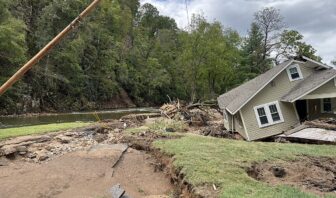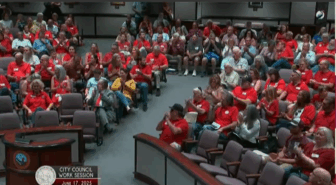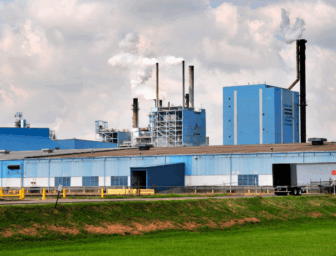For Immediate Release
February 25, 2013
Contact:
Kelly Trout, 240-396-2022, kelly@chesapeakeclimate.org
Mike Tidwell, 240-460-5838, mtidwell@chesapeakeclimate.org
Polling shows seventy-eight percent of Marylanders support approach of moratorium bill; voters want General Assembly to join Governor’s agencies in deciding fate of fracking in the state
ANNAPOLIS—Poll results released today, on the eve of a key Senate hearing on the issue of fracking, show that an overwhelming and growing majority of Maryland voters want legislators to require thorough study of the risks of fracking before any drilling is permitted in the state. Advocates and policymakers pointed to the polling as strong evidence that the fracking moratorium bill (SB 601) before the General Assembly is a common-sense approach that reflects the will of state voters.
More than three-fourths of registered voters surveyed, or 78 percent, want the General Assembly to require environmental and safety studies for fracking, a jump in support of seven points from similar polling conducted last spring. Support for mandating studies aligns across party, regional and racial lines — including 76 percent of Western Marylanders, 55 percent of Republicans and a very strong 95 percent of African Americans. The support is also notably intense. Fifty-eight percent of respondents felt strongly that health and safety studies must come before fracking. Three times as many respondents would vote for a legislator who supports studies as would vote against that legislator.
Governor Martin O’Malley has already requested fracking safety studies as part of a June 2011 executive order, but sufficient funding has not been guaranteed and many legal experts say the order is subject to legal challenge from oil and gas corporations unless backed up by action from the General Assembly.
“This new poll indicates that the more Marylanders learn about fracking, the more concerned they are about its risks, and with good reason,” said Senator Bobby Zirkin, lead Senate sponsor of SB 601. “My constituents in northern Baltimore County are already seeing impacts from fracking activity in other states — with proposed pipelines literally going through their backyards. Until we know the full extent of the risks to Maryland, we shouldn’t allow fracking to occur. That’s why I’ve joined my colleagues in the House in introducing the Maryland Hydraulic Fracturing Moratorium and Right to Know Act of 2013.”
The poll, conducted by OpinionWorks and commissioned by the Chesapeake Climate Action Network, also asked Maryland voters who they would most trust to make a final decision about whether fracking is safe enough for widespread drilling in Maryland. Nearly half wanted the General Assembly to make the final call with input from state agencies. Respondents were least-trusting of the oil and gas industry, with only 9 percent willing to trust their decision, compared to 30 percent who would trust environmental groups.
“Western Marylanders have the most at stake if fracking goes forward, so it’s no surprise that there’s strong support here for common-sense studies,” said Eric Robison, co-founder and president of Citizen Shale. “If toxic chemicals spill into streams or pollute drinking water, we could be paying with our health, our tourism jobs and our farms long after the gas companies leave town. The moratorium bill will protect us now and ensure that a final decision is based on the facts, not industry pressure or propaganda.”
The fracking moratorium bill (SB 601) will be heard at 1pm tomorrow in the Senate Education, Health, and Environmental Affairs Committee. The bill would create a statutory moratorium on fracking until the set of scientific studies requested by Governor O’Malley are completed and the overall risks of fracking are assessed. It would guarantee time for the General Assembly and state agencies to respond to the results and determine the proper way forward to protect Maryland’s health and environment.
“The public is clearly looking to the General Assembly for leadership on this issue, and we can’t afford any more delay,” said Mike Tidwell, director of the Chesapeake Climate Action Network. “The fracking moratorium bill that will be heard in the Senate tomorrow will ensure the public gets the truth when it matters the most — before any harm is done.”
Drilling activity related to hydraulic fracturing — or fracking — has been directly linked to a whole host of harmful effects including contaminated streams and rivers, flammable tap water, deforestation, air pollution, and associated health problems. Underground re-injection of fracking wastewater, meanwhile, is strongly suspected to be the cause of a large increase in earthquakes across the central United States, including in nearby Ohio. Fracking also contributes to climate change through the release of methane gas in the drilling process and from emissions of planet-warming carbon dioxide upon combustion.
The OpinionWorks poll surveyed 800 randomly-selected Maryland registered voters between December 28, 2012 – January 2, 2013 and carries a margin of sampling error no greater than ±3.5%.
View the OpinionWorks memo with the statewide fracking poll results (PDF).
Read more about how the MD fracking moratorium bill (SB 601) would work.
###




